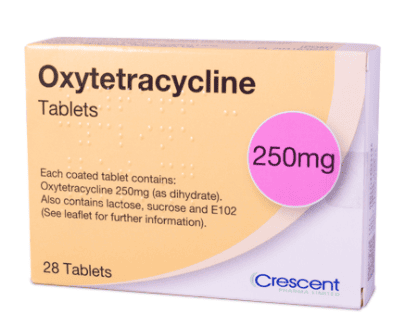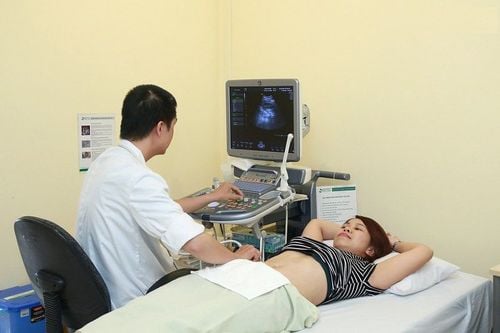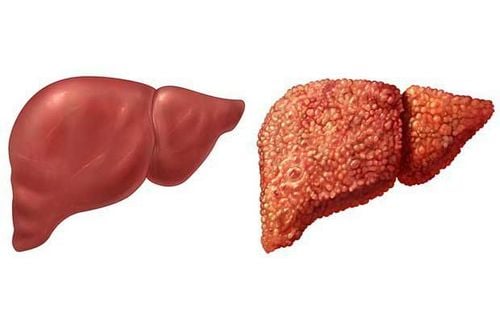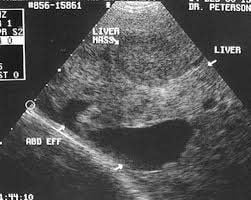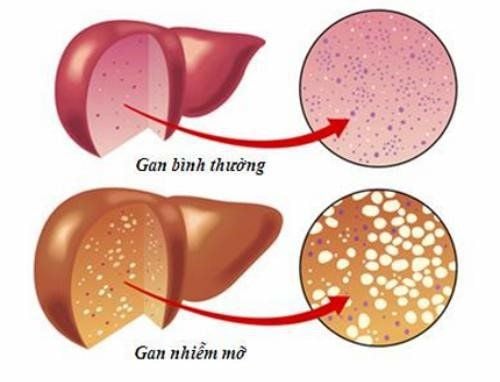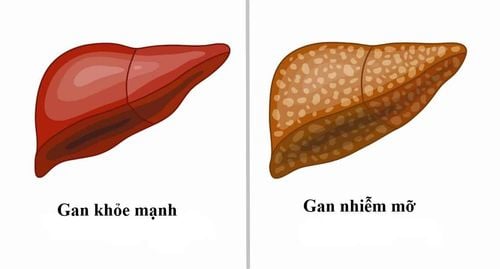The article is expertly advised by Dr. Doctor CCII Phan Thi Minh Huong - Department of Medical Examination & Internal Medicine - Vinmec Danang International General Hospital
Calcification is a condition that can occur on any soft tissue in the body, most of which are benign. Liver calcification is a sign of chronic inflammation in the liver and is usually detected by ultrasound or x-ray.
1. What is liver parenchymal calcification?
When the liver is damaged due to causes such as parasitic infection, using substances harmful to the liver ... after a process of reacting to those agents, the damaged liver parenchyma will form fibrosis and become scar tissue, this scar tissue when ultrasound will see the image as calcified nodules of different sizes.
Small liver calcifications are usually not obvious, when these calcifications are larger, they can cause pain, compressing the biliary tract, causing biliary obstruction.
2. Causes of calcification of liver parenchyma
Possible causes of liver calcification include:
- Due to factors that lead to chronic inflammation in the liver such as parasites, liver abscess, use of drugs that are toxic to the liver.
- People who drink a lot of alcohol and beer for a long time lead to liver damage, alcoholic hepatitis. This condition also causes liver calcification, even cirrhosis, liver cancer.
- Liver calcification occurs in neonates due to infection during pregnancy or postpartum infection.
- Due to prolonged liver dysfunction leading to liver calcification, more severe cirrhosis.
- Cysts or other tumors in the liver also cause accumulation in the liver and lead to liver calcification. When a tumor has a tendency to calcification, it is necessary to do specialized tests to help evaluate whether the tumor is benign or malignant. If the tumor is malignant, it should be treated immediately.

3. Is liver calcification dangerous?
Liver calcifications are small, usually benign, and do not cause any harm and do not require treatment. However, if the size is large, it can compress the bile ducts and cause cholangitis with symptoms such as:
- Causes right upper quadrant pain, often painful when exercising.
- Fever, chills: Cholangitis is usually caused by bacterial infection.
- Jaundice, yellowing of the eye mucosa: Patients often have yellower skin than usual, and symptoms of jaundice usually appear after pain and fever. In addition, the urine of the sick person is dark yellow, discolored stools.
- Digestive disorders: Because calcified nodules cause bile duct obstruction in the liver, it affects digestion, causing anorexia, fear of fat, bloating, and indigestion.
4. What to do when liver calcification?
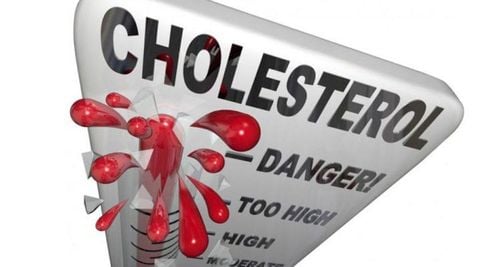
Cases of large calcified liver nodules, causing biliary compression causing symptoms of cholangitis need to be treated. If the calcified nodules are still small and the above symptoms have not appeared, liver function tests are within normal limits, there is no need for treatment, but only a change in lifestyle and diet.
- Dietary cholesterol restriction to reduce the risk of bile pigment deposition. Cholesterol is abundant in animal viscera, animal fat, eating red meat, eating egg yolks...so it should be limited and should not be eaten too late. It is necessary to increase fresh fruits and vegetables, eat a lot of white meat and divide meals, do not eat too much.
- Get enough sleep about 7-8 hours a day and don't eat late, don't stay up late.
- Limit drinking alcohol, beer, substances that are toxic to the liver and when using drugs that are toxic to the liver should be guided by a doctor.
- Periodic health examination every 3-6 months to see if the liver calcification nodules has progressed larger and not to be examined immediately when there are signs such as liver pain, fever, jaundice...
- In addition, regular deworming is required on average. once every 6 months.
Most liver calcifications are not dangerous, benign, and rarely develop. However, when liver calcification develops, causing warning symptoms, patients should go to medical facilities for early examination, diagnosis and treatment.
Currently, Vinmec International General Hospital has Hepatobiliary Screening packages, which help detect Hepatitis Virus at an early stage even when there are no symptoms. In addition, the comprehensive hepatobiliary screening package helps customers:
- Evaluate hepatobiliary function.
- Early screening for liver cancer.
- Perform tests such as Total blood cell analysis, coagulation function, screening for hepatitis B, C.
- Assessment of hepatobiliary status through ultrasound images and diseases that are at risk of causing liver disease more severe liver disease.
- In-depth analysis of parameters to evaluate hepatobiliary function through laboratory tests; the risk of affecting the liver and early screening for hepatobiliary cancer.
Please dial HOTLINE for more information or register for an appointment HERE. Download MyVinmec app to make appointments faster and to manage your bookings easily.





